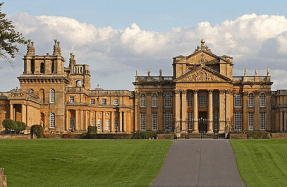
If he had not been so impatient, Winston Churchill would have been a Londoner born and bred. Lord and Lady Randolph Churchill resided at 48 Charles Street in Mayfair. It was there that their first child was to have been born. Anxious, however, to get on to the stage of life, baby Winston made a premature entrance while his parents were visiting with Lord Randolph’s parents at Blenheim Palace, the family seat in Oxfordshire.
The lifelong connections between Winston Churchill and the capital city of the nation, Commonwealth, and Empire would fill a book. Given the public appetite for books about Churchill and the number of specialized studies already published, it seems odd that no one has yet written one. At least we have some maps. Historians Martin Gilbert and Andrew Roberts both provide good maps in their biographies of Churchill, showing the locations of the various houses and offices he occupied in London, along with many other important venues.
Despite his forty-year residency at his beloved Chartwell in Kent, Churchill lived more years in London than anywhere else—albeit not in the same residence. From his youth he aspired to a parliamentary career, so the city became the center of his professional life. It was the city in which he got married, the city in which he died, and the city where his funeral took place. And although Churchill long represented the London suburb of Epping, as Allen Packwood shows starting on page 21, Churchill once came within a whisker of becoming the MP for the Abbey division of Westminster—the very heart of the imperial metropole.
In his introduction to this issue, Peter Clarke notes the difficulty of associating the topographical with the theme “Churchill and England.” Churchill’s personal sense of Englishness undoubtedly had deep roots in Oxfordshire and Kent, but, in






